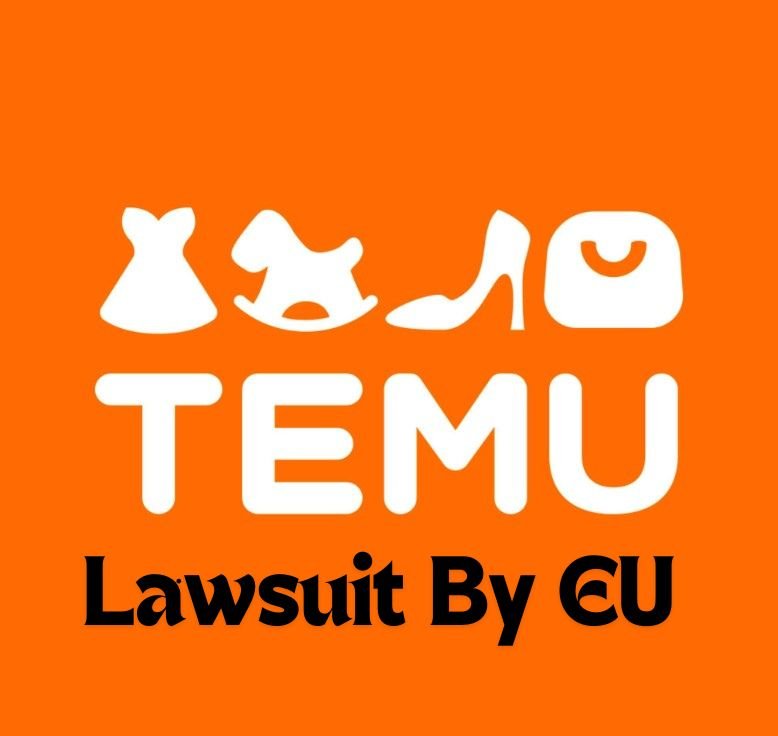
TEMU Lawsuit By EU
EU Launches Formal Investigation into Temu’s Compliance with Digital Services Act
The European Union has taken a decisive step in ensuring consumer safety and fair market practices within its digital marketplace, targeting the rapidly growing Chinese online retailer, Temu. This investigation, part of the EU’s Digital Services Act (DSA) enforcement, aims to determine whether Temu has breached regulations that protect consumers from illegal products, addictive service designs, and inadequate transparency regarding seller information. The scrutiny underscores the EU’s commitment to a secure and fair digital market in the face of tech giants that span international borders.
The Rise of Temu: Background and EU Concerns
Temu, a subsidiary of PDD Holdings, entered the European market in April 2023 and quickly gained traction with its motto “shop like a billionaire.” With over 92 million users in the EU by September 2024, Temu offers an extensive range of products, from clothing to electronics, often at prices lower than those found on platforms like Amazon.
However, complaints filed by the European Consumer Organisation (BEUC) and various national consumer groups allege that Temu’s platform hosts potentially unsafe and illegal products, lacks robust seller verification systems, and employs an addictive user experience that may negatively impact consumers’ well-being.
The EU Commission’s decision to probe Temu’s compliance with the DSA reflects ongoing concerns about illegal goods, counterfeit products, and the addictive design of its interface. The DSA, enacted to protect users and uphold transparency within digital platforms, imposes stringent requirements on “Very Large Online Platforms” (VLOPs) like Temu to actively mitigate risks associated with illegal activities and harmful content.
Key Areas of Investigation Under the DSA
The European Commission’s investigation focuses on four major aspects of Temu’s operations:
- Illegal Products and Rogue Sellers: Temu is under scrutiny for potentially allowing non-compliant products, such as counterfeit items and unsafe cosmetics, to resurface on its platform after suspension. EU officials emphasize the need for Temu to employ more effective systems to prevent these products from reappearing, a challenge exacerbated by cross-border trade dynamics.
- Addictive Design: Another significant area of concern is Temu’s user interface, which incorporates game-like reward programs to encourage frequent purchases. Critics argue that such features may exploit behavioral psychology to increase sales, potentially causing harm to consumers’ mental and physical well-being. The DSA mandates that platforms must limit the risk of addictive design, requiring transparency and moderation.
- Recommendation Systems and Transparency: Temu’s recommendation algorithms are designed to enhance the shopping experience by suggesting products based on user profiles. The DSA requires these algorithms to be transparent, allowing users to understand why certain products are recommended and providing an option to view suggestions without profiling.
- Researcher Access to Public Data: To promote accountability, the DSA mandates that platforms provide researchers with access to publicly available data. This access is intended to facilitate independent analysis, helping regulators and stakeholders assess whether platforms like Temu are adhering to legal standards.
The EU’s executive vice-president Margrethe Vestager highlighted the importance of protecting consumer interests, stating, “We want to ensure that Temu is complying with the DSA. Our enforcement will guarantee a level playing field so that every platform, including Temu, fully respects the laws that keep our European market safe and fair for all.”
Potential Implications for Temu and Similar Platforms
If found guilty of breaching the DSA, Temu could face penalties of up to 6% of its global turnover—a potentially substantial figure given its rapid growth trajectory. Additionally, this case signals that the EU is committed to holding tech companies accountable, emphasizing that the rise of e-commerce must be balanced with stringent consumer protection measures.
The EU has adopted a similar stance with other platforms, such as Shein, questioning whether these companies provide sufficient transparency and protections for users. Fernando Hortal Foronda of BEUC expressed support for the EU’s decision to investigate, noting, “This decision by the commission is a promising step, but only the first.”
In response to the investigation, Temu has maintained that it is committed to consumer safety, investing in compliance measures to meet EU standards. A Temu spokesperson remarked, “We will cooperate fully with regulators to support our shared goal of a safe, trusted marketplace for consumers,” and mentioned upcoming efforts to prevent counterfeit sales through a memorandum of understanding with the EU.
Real-World Implications: What This Means for Consumers
While Temu provides users with access to affordable products, its practices raise questions about the ethical use of data and design. Consumers have reported mixed experiences, with some appreciating the low prices but expressing concerns about product quality and transparency in the platform’s advertising tactics. For example, one consumer from Germany shared, “The app’s constant rewards make it hard to stop browsing, but the quality of products varies, which can be disappointing.”
To help users navigate these issues, here are some tips for making informed choices:
- Check Product and Seller Reviews: Verifying reviews and ratings can offer insights into the quality of items and the reliability of sellers.
- Limit Use of Reward Systems: While reward-based systems can be appealing, setting personal spending limits can help mitigate compulsive buying tendencies.
- Understand Recommendation Algorithms: Opting out of personalized recommendations, if available, may help reduce potential biases in the product offerings shown to users.
Reflecting on Technology’s Role in Modern Consumerism
Temu’s case provides a window into the complex ethical considerations of online shopping platforms. As users, we benefit from these innovations but must also be aware of the potential risks to privacy, well-being, and market fairness.
Is the convenience of “shop like a billionaire” worth the possible exposure to low-quality or even illegal products? How can platforms balance user engagement with responsible design? And as consumers, how much responsibility do we bear in understanding and responding to these new-age digital environments?
These questions remain central as the EU and other regulatory bodies work to shape the future of digital commerce, prioritizing not just innovation but also safety, fairness, and transparency.




